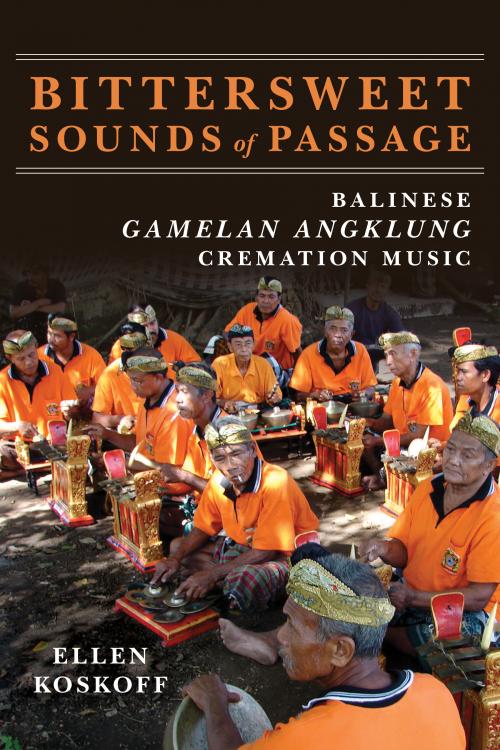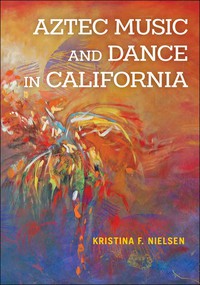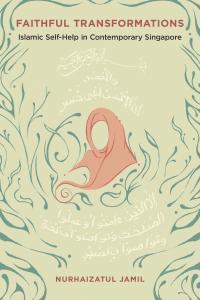
Bittersweet Sounds of Passage
Cloth: 07/08/2025
About the Book
An important presence through centuries of musical and social change, gamelan angklung is a small, four-tone bronze-keyed ensemble that remains ubiquitous at cremations in Bali. Ellen Koskoff offers a compelling portrait of these little-studied orchestras and their members: rice farmers, eatery owners, and other locals who do not see themselves as musicians or what they play as music.Koskoff examines the history, cultural significance, and musical structures of contemporary gamelan angklung cremation music through the lens of three intertwined stories: existing scholarship on this music, written mostly by Western composers and scholars; the views of those performing and experiencing the music who regard it as dharma--ritual obligation, a basic concept in Balinese Hinduism; and the music itself, with a musical analysis focusing on changes in rasa--feeling, flavor and musical flow.
A journey inside a tradition, Bittersweet Sounds of Passage reveals the overlooked music of an important ritual in Balinese village life.
* Publication of this book is supported by a grant from the Bruno Nettl Endowment for Ethnomusicology.
About the Author
Ellen Koskoff is Professor Emerita of Ethnomusicology at the Eastman School of Music at the University of Rochester. Her many books include the award-winning Music in Lubavitcher Life and A Feminist Ethnomusicology: Writings on Music and Gender.Reviews
Blurbs
“A marvelous and distinctive contribution to the growing canon of scholarship on Balinese gamelan music that is sure to be enjoyed by international gamelan musicians, students of ethnomusicology, and the many connoisseurs of Balinese culture far beyond academia.”--Michael Tenzer, author of Gamelan Gong Kebyar: The Art of Twentieth Century Balinese Music
Supplemental Material
Gending
1. "Santun" (Politeness), pemungkah, pemungkah, pengiba
 WAV
WAV
2. "Tambun" (Belonging Together), pemungkah, pengiba
 WAV
WAV
3. "Katak Ngongkek" (Croaking Frog), pemungkah, pengawak, pengiba
 WAV
WAV
4. "Tungtung Tangis" (Forever Weeping), pemungkah, pengawak, pengawak/pengiba hybrid
 WAV
WAV
5. "Capung Gantung" (Hovering Dragonfly), pemungkah, pengawak, pengiba
 WAV
WAV
6. "Sekar Jepun" (Japanese Flower), pemungkah, pengawak, pengiba
 WAV
WAV
7. "Bapang" (a metric pattern), pemungkah (same as 4 pemungkah), pemungkah, pengiba (same as 6 pengiba)
 WAV
WAV
8. "Lutung Loncat" (Jumping Monkey), pengawak, pengawak, pengawak, pengiba (same as 2 pengiba)
 WAV
WAV
9. "Prebangsa," pemungkah (same as 6 pemungkah), pengawak (same as 6 pengawak), pengawak
 WAV
WAV
10. "Capung Manjus" (Bathing Dragonfly), pengawak/pemungkah hybrid, pengawak (same as 4 pengawak), pengawak/pengiba hybrid
 WAV
WAV
11. "Sekar Gadung" (Gadung Flower), pemungkah (same as 6 pemungkah), pengawak (same as 6 pengawak), pengiba (same as 2 pengiba)
 WAV
WAV
12. "Cerukcuk Punyah" (Drunken Bird), pengawak/pemungkah hybrid (same as 10 pengawak/pemungkah hybrid), pemungkah, pengiba
 WAV
WAV
13. "Alis-Alis Ijo" (Green Eyebrow), pemungkah, pemungkah, pemungkah/pengawak hybrid, pengawak
 WAV
WAV
14. "Jangkrik Ngibing" (Dancing Cricket), pemungkah/pengawak hybrid, pengawak (same as 10 pengawak/pengiba hybrid)
 WAV
WAV
15. "Jaran Nginjek" (Runaway Horse), pengiba
 WAV
WAV
Recordings
Recording 1.1. Kulkul calling the men of Taman Sari to the balé banjar
 WAV
WAV
Recording 2.1. "Capung Gantung"
 WAV
WAV
Recording 2.2. "Tabuh Telu," Introduction, played by the Eastman School's gamelan gong kebyar, Sanjiwani
 WAV
WAV
Recording 2.3. "Tabuh Telu," Introduction, played by the Eastman School's gamelan angklung, Lila Muni
 WAV
WAV
Recording 2.4. "Tabuh Telu," Introduction from "Balinese Ceremonial Music for Two Pianos" (1937), by Colin McPhee
 WAV
WAV
Recording 2.5. "Kelinci Nongklang" (1982), by I Nyoman Suadin
 WAV
WAV
Recording 7.1. Standard Pokok: First four phrases of "Sekar Jepun," pemungkah
 WAV
WAV
Recording 7.2. Support Pokok: First four phrases of "Tungtung Tangis," pengawak
 WAV
WAV
Recording 7.3. Ostinato Pokok: Two cycles of "Tungtung Tangis," pengiba
 WAV
WAV
Recording 7.4. Pemungkah initial phrase-group from "Santun"
 WAV
WAV
Recording 7.5. Pengiba from "Santun"
 WAV
WAV
Recording 7.6. Pengiba from "Capung Gantung"
 WAV
WAV
Recording 7.7. Pemungkah initial phrase-group from "Tambun"
 WAV
WAV
Recording 7.8. Pengawak initial phrase-group from "Lutung Loncat," A
 WAV
WAV
Recording 7.9. Pengawak initial phrase-group from "Lutung Loncat," C
 WAV
WAV
Recording 7.10. Pengawak internal cycle from "Capung Manjus"
 WAV
WAV
Recording 7.11. Long syncopated link from "Sekar Jepun," pengawak
 WAV
WAV
Recording 7.12. Pengawak from "Tungtung Tangis"
 WAV
WAV
Recording 8.1. Pemungkah from "Katak Ngongkek"
 WAV
WAV
Recording 8.2. Pemungkah from "Alis-Alis Ijo"
 WAV
WAV
Recording 8.3. Pemungkah from "Tambun"
 WAV
WAV
Recording 8.4. Pemungkah from "Tungtung Tangis"
 WAV
WAV
Recording 8.5. Pengawak from "Prebangsa"
 WAV
WAV
Recording 8.6. Pengawak from "Sekar Jepun"
 WAV
WAV
Recording 8.7. Pengiba from "Lutung Loncat"
 WAV
WAV
Recording 8.8. Pengiba from "Tungtung Tangis"
 WAV
WAV
Recording 8.9. Pemungkah/Pengawak hybrid from "Alis-Alis Ijo"
 WAV
WAV
Recording 8.10. Pengawak/Pengiba hybrid from "Capung Manjus"
 WAV
WAV
Recording 9.1. Pemungkah from "Capung Gantung"
 WAV
WAV









